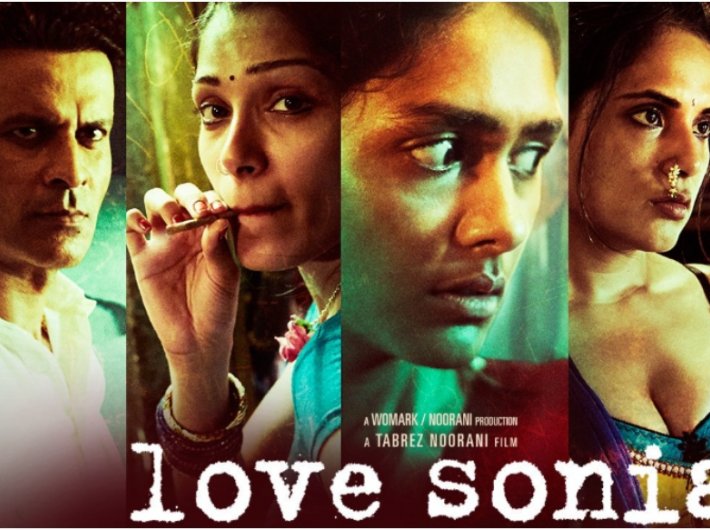Why you must force yourself to watch Love Sonia, the way some of its actors forced themselves to play despicable characters
Love Sonia is not a film you would want to watch if you knew its subject: sex trafficking. Without even a scene experienced, the subject induces visceral revulsion. However optimistic the screenplay, it can only deal in ugly dregs and bring up retching bile. Even so, Love Sonia, gritty and traumatising, is a movie you must force yourself to watch. Much in the way some of its actors have forced themselves to play despicable characters.
The chameleonic Manoj Bajpayee, who plays Faisal, a brothel owner and trafficker, says he went through hell to bring authenticity to the character. So harrowing was the process of preparing for the role that he felt like dropping out. It's not as if the role is lengthy – just a scattering of brief scenes, in which he mostly talks rather than does something. Even in the scenes in which Faisal gets vicious, filmmaker Tabrez Noorani shows restraint. Throughout the film, it's what is not shown (and left to viewers to imagine) that scares and nauseates. Sai Tamhankar, another fine actor who plays Anjali, a procurer, told herself that the more reptilian she made herself the more effective she would be in projecting the enormity of sex trafficking. Like Bajpayee, she has a small role. But as Anjali she remains strongly foregrounded in what you remember of the film because of the verisimilitude of her patently false sweet-talk, her promises of good jobs in the big city, her slippery wiles in abandoning her prey once a deal is through.
Preparing for such roles would involve intense immersion: perhaps interviews with lowlifes, observation of life's grimy underbelly, listening to helpless victims and their heart-wrenching experiences. More demanding, and disturbing, would be the process of internalising the character mentally and psychologically so that external expression through dialogue and action rings true. Bajpayee and Tamhankar's success in bringing credibility to their roles bespeaks the searing they have subjected their souls to.
It's an amoral world Love Sonia depicts: cruelty, physical and sexual violence, and every kind of abuse imaginable are so casually normal that you begin to believe that no amount of goodness will be able to counterbalance its malevolence. The film explores the whole cycle of trafficking, right from a small village where a distressed farmer sells one of his daughters, Preety, sending her off to Mumbai for work. Her sister, the Sonia of the title, goes to Mumbai hoping to rescue and bring her back. Like Preety, she too is sold to a brothel. She is lucky to be ultimately rescued, but her sister, after being rescued, is dragged back to prostitution by her addiction. The film ends with Sonia nursing the bleak hope that one day Preety will return.
Noorani has researched sex trafficking for years. In 2003, he learnt of an Indian girl found with other trafficking victims inside a shipping container that had landed in Los Angeles. The victims had been transported from China. In Love Sonia, too, women are shown being trafficked in shipping containers, for sea journeys of 10-15 days or more to foreign lands. They're given canisters of water, packets of food, a couple of buckets to relieve themselves in. Some are kept drugged. One of the goons who locks them inside tells them there's no use shouting because their container will be stacked among thousands of others and no one will hear them.
Like Bajpayee and Tamhankar plunging themselves into the crucibles of their roles, we, as viewers, must use our imagination to see ourselves in the dank, sordid, and lightless container that is the world of sex trafficking, where futile cries echo back mockingly. We must do that because as a society we have failed miserably to break the horrendous cycle of poverty and exploitation of which young girls and women are the worst victims. Experiencing, even vicariously, the trauma of the victims of sex trafficking will sensitise us to their plight. For most of us, even that act of imagination will be difficult to achieve. But in the dark of the cinema hall or the living room, with Love Sonia playing on a screen, it may just become possible. Only, you may not be able to speak for some time after the film ends – the way Demi Moore, who plays a small role in it, was unable to after she attended its screening.

